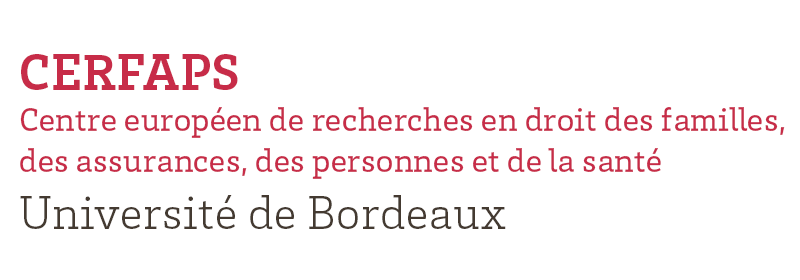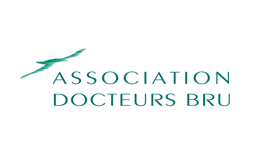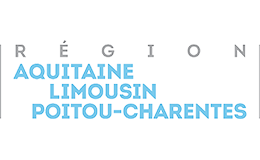Les mutations de la filiation
Marion Damy.

- Thèse Droit, Bordeaux, dactyl., 2024, 611 p.
- Soutenue le mercredi 18 décembre 2024
- Jury : Pascale Deumier, professeure, université Jean Moulin Lyon 3, rapportrice ; Hugues Fulchiron, professeur, université Jean Moulin Lyon 3, conseiller en service extraordinaire à la Cour de cassation, examinateur ; Adeline Gouttenoire, professeure, université de Bordeaux, directrice de recherches ; Jérémy Houssier, professeur, université de Reims-Champagne-Ardenne, rapporteur ; Marie Lamarche, professeure, université de Bordeaux, examinatrice
Résumé / Abstract
Avant même la loi de ratification de 2009, réformant l’ordonnance relative à la filiation en 2005, la matière semblait déjà devoir affronter de nouveaux défis. L’évolution des progrès techniques et scientifiques ainsi que la diffusion des droits fondamentaux perturbent, en effet, les équilibres entre les enjeux collectifs et individuels inhérents à l’encadrement des relations familiales. Davantage tournées vers l’individu, ces influences conjuguées densifient la subjectivisation décrite par le doyen Carbonnier. Partant du constat que ce phénomène a franchi une nouvelle étape depuis la libéralisation du mariage en 2013, cette étude a vocation à étudier les mutations à l’œuvre en droit de la filiation qui en découlent. Il en ressort que le modèle hétéronormé s’estompe progressivement, la libéralisation de la matière induisant, plus discrètement, la personnalisation de son application. En droit de la filiation, le phénomène de subjectivisation se manifeste, dès lors, en amont, mais également en aval de la loi. Au stade de l’élaboration, le contenu de la loi peine à poser des limites quand, au stade de l’application, la limite opposée à la volonté individuelle devant désormais être plus concrète et justifiée. En conséquence, le contrôle du domaine se déplace en faveur du juge, au plus près des situations d’espèce.
Even before the 2009 ratification law, which reformed the 2005 filiation ordinance, the subject was already facing new challenges. Developments in technical and scientific progress, as well as the expansion of fundamental rights, indeed, are disrupting the balance between collective and individual issues inherent to the legal framework of family relationships. These combined influences, which are more focused on the individual, are intensifying the subjectivisation described by dean Carbonnier. Given that this phenomenon has reached a new stage since the liberalization of marriage in 2013, the aim of this study is to examine the resulting mutations in the filiation laws. It emerges that the heteronormative model is gradually fading, implying with the liberalization of the subject, more subtly, to a personalization of its application. In the filiation law, the phenomenon of subjectivisation can therefore be seen both upstream and downstream of the law. At the drafting stage, the content of the law struggles to set limits, whereas at the application stage, the limit set against the individual will have to be more tangible and justified. As a result, the control of the field shifts in favor of the judge, as close as possible to individual situations.
Mots-clefs / Keywords
Droits fondamentaux – Transformations sociales – Filiation – Famille – Intérêt de l’enfant – Engendrement
Fundamental rights – Social transformations – Filiation – Family – Best interest of the child – Reproduction






